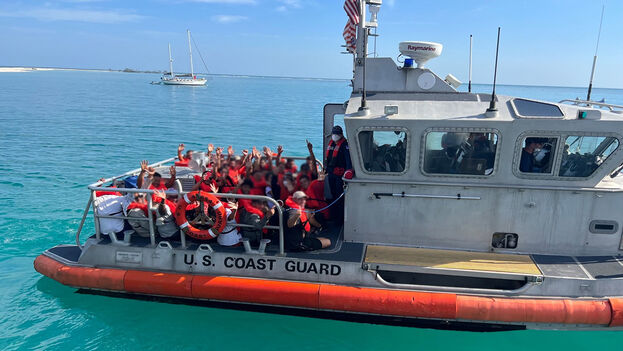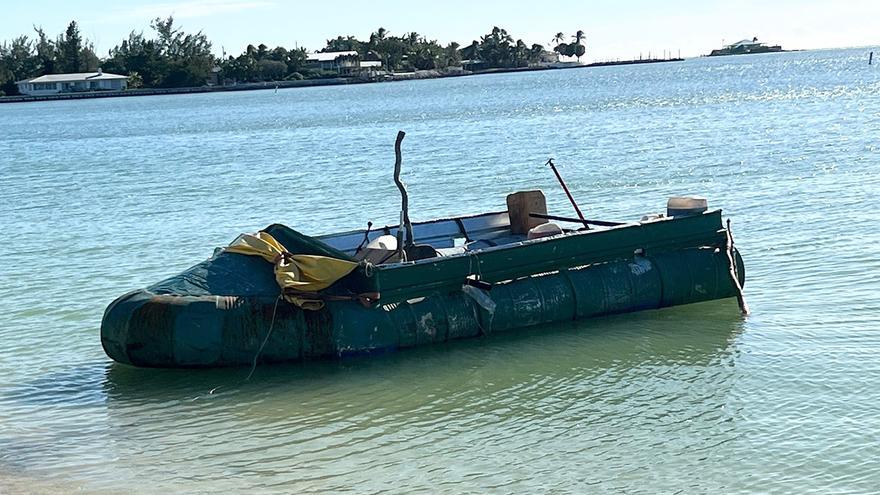
![]() 14ymedio, Havana, January 6, 2022 — The Cuban balseros [rafters] who have managed to disembark in Florida, including the more than 300 in Dry Tortugas National Park and who were processed at the Border Patrol station, are receiving “an expeditious deportation order,” the verdict issued by a judge to expel a person but that can be reversed with legal aid, according to immigration lawyer Willy Allen.
14ymedio, Havana, January 6, 2022 — The Cuban balseros [rafters] who have managed to disembark in Florida, including the more than 300 in Dry Tortugas National Park and who were processed at the Border Patrol station, are receiving “an expeditious deportation order,” the verdict issued by a judge to expel a person but that can be reversed with legal aid, according to immigration lawyer Willy Allen.
The procedure to appeal this order requires the EOIR-26 form of the Immigration Court, and the migrant has a period of 30 days to submit it. It is up to the defense lawyer to present before the Court the legal arguments necessary for the court to reverse the expulsion.
Cuban rafters who set foot on land in the United States and are arrested by immigration authorities “are being released without going through a credible-fear interview,” Allen told Univision.
The attorney reiterated that the rafters who manage to land are being released with “an expeditious deportation order, which limits them to seeking asylum” and consequently, after one year and one day they will not be able to benefit from the Cuban Adjustment Law.
The lawyer’s statements were given on Friday when the Border Patrol arrested 90 balseros who managed to disembark in the Florida Keys. According to the chief officer of the Miami sector, the Cubans made their journey on five rustic boats, and residents of the area reported the arrival.
The official confirmed the reopening to the public of Dry Tortugas National Park, where more than 400 Island nationals disembarked in the last two weeks. The park’s amenities include “night camp” and “ferry and seaplane services.”

The lawyer also delved into the new U.S. immigration program that will facilitate the granting of up to 30,000 visas each month to Cuban, Venezuelan, Nicaraguan and Haitian citizens, but which will also deport nationals and others in an illegal situation.
Those who apply for humanitarian parole “must have a sponsor or a family member who legally resides in the United States and must pass a strict background check.” The beneficiaries may legally stay for two years in the U.S. and “apply for a temporary work permit.” It is expected that 360,000 people from those four countries could legally enter the United States within a period of one year.
Attorney Willy Allen told Univision that if the entry of a Cuban is by air under the new program, an inspection at the airport and an official admission to the country is required, which are some of the requirements of the Adjustment Law so that the migrant can then seek residence.
For Allen, the thousands of Cubans who enter in this way in the future, “have a safe path for their residence” in the United States, even if “the parole is only for a year, two years or a day.”
Translated by Regina Anavy
____________
COLLABORATE WITH OUR WORK: The 14ymedio team is committed to practicing serious journalism that reflects Cuba’s reality in all its depth. Thank you for joining us on this long journey. We invite you to continue supporting us by becoming a member of 14ymedio now. Together we can continue transforming journalism in Cuba.
